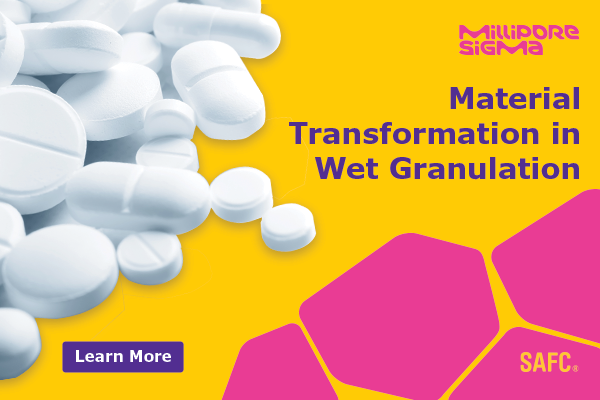Continuous manufacturing (CM) is increasingly used as an alternative to traditional batch manufacturing of solid pharmaceutical dosage forms. Wet granulation is one of the manufacturing technologies that was successfully migrated from batch to continuous processing. Thereby, the residence time of material under (stress) conditions is significantly reduced which in many cases is a main advantage of CM. However, in other cases with slow transformation processes this raises new challenges. In particular, the question arises as to which process parameters and material systems make it possible to continuously process products with material transformation. In this white paper, the granulation of δ-mannitol will be used to illustrate how shortened process times can affect polymorphic transformation. Particular attention will also be paid to the role of other substances in the formulation that can affect the rate of transformation.

